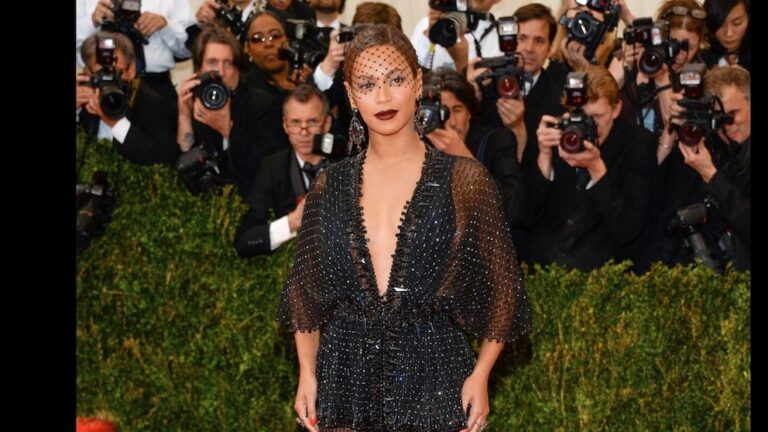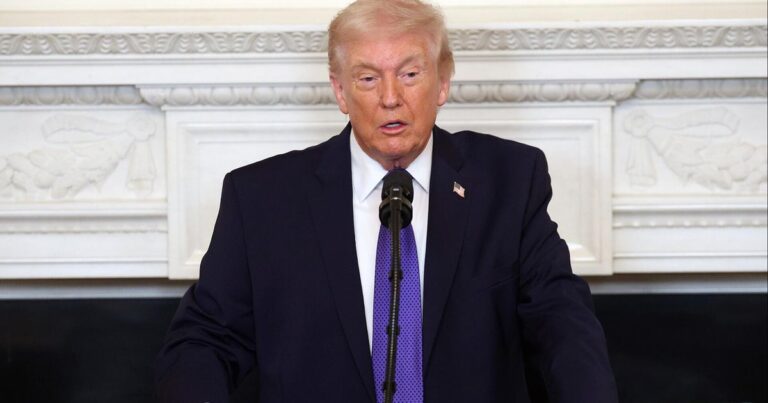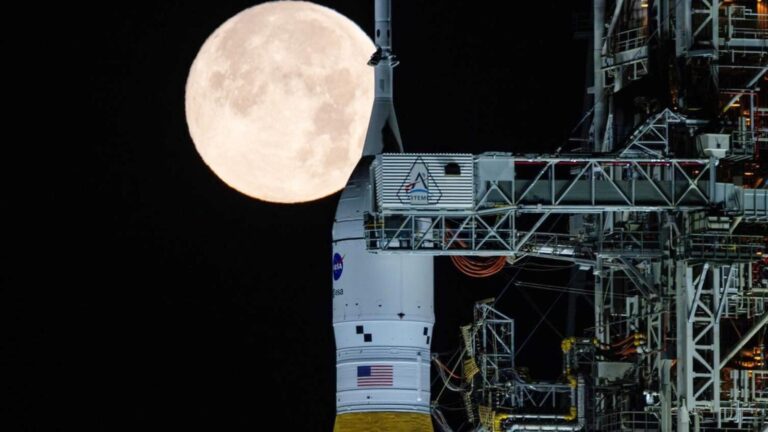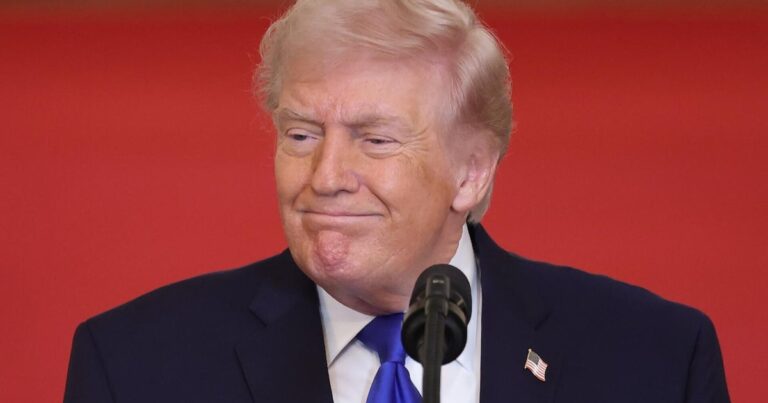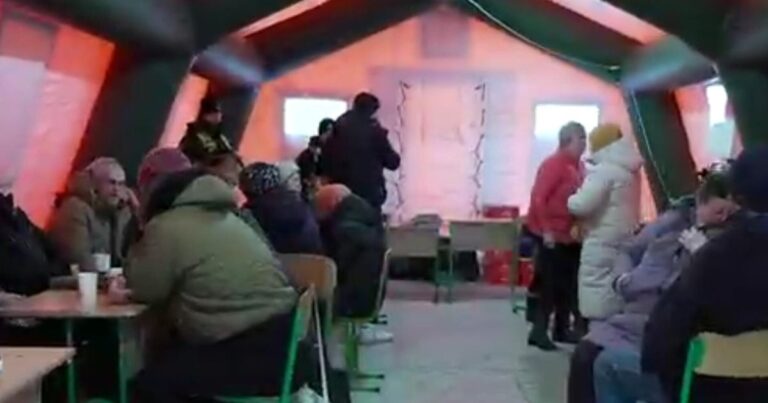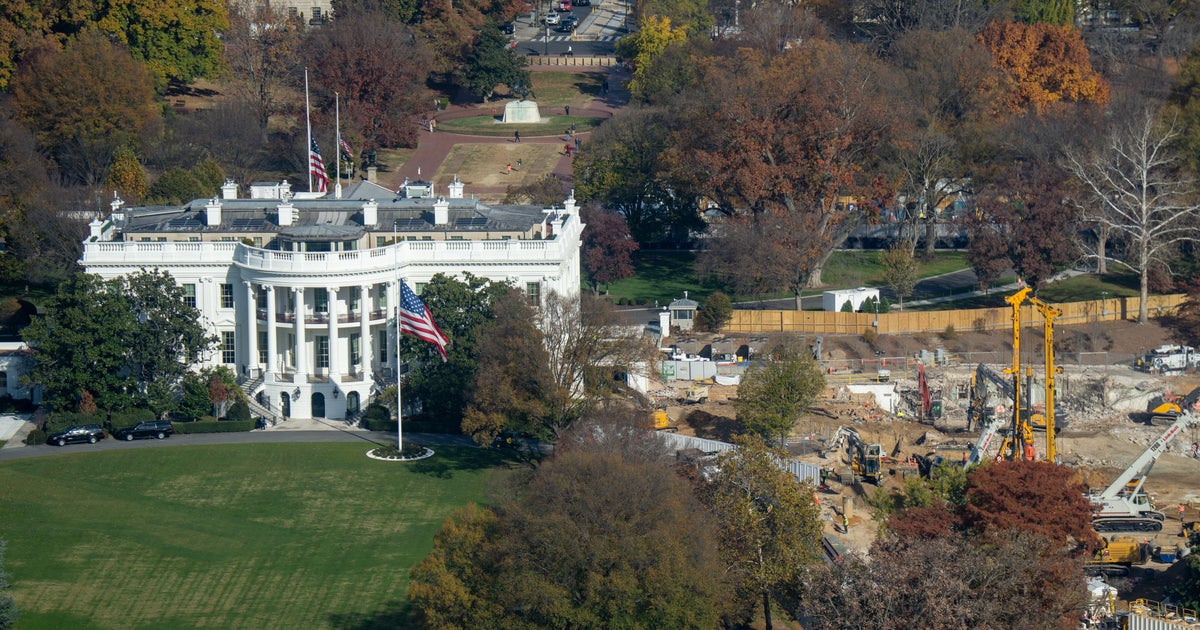
Democrats on Tuesday introduced legislation to put guardrails around private donations to fund construction on White House grounds and the vice president’s residence. The bill, which comes in response to President Trump soliciting private money to fund a $300 million East Wing ballroom, is sponsored by Sen. Elizabeth Warren of Massachusetts and Rep. Robert Garcia of California, the top Democrat on the House Oversight Committee. The bill aims to impose restrictions on donors seeking to influence the administration in power and would require transparency. It would prohibit the president from soliciting donations, ban the display of donor names, bar donors from remaining anonymous and institute a two-year “cooling-off period” in which donors would be prohibited from lobbying the government. The bill, called “Stop Ballroom Bribery Act,” would also prevent donations from businesses or individuals with business before the government including those facing federal litigation or enforcement actions. Several firms that donated to the 90, 000-square-foot ballroom project have pending business before the government, like mergers requiring Justice Department approval or federal contracts hanging in the balance. “Americans shouldn’t have to wonder whether President Trump is building a ballroom to facilitate a pay-to-play scheme for political favor,” Warren said. With Republican majorities in both chambers, the bill faces long odds. Connecticut Sen. Richard Blumenthal, a Democrat, co-sponsored the legislation. “President Trump has put a ‘for sale’ sign on the White House-soliciting hundreds of millions of dollars from special interests to fund his $300 million vanity project. Our measure is a direct response to Trump’s ballroom boondoggle,” Blumenthal said. The White House did not reply to a request for comment on the bill. In the Oval Office Tuesday, President Trump said the new, larger ballroom would be useful to host more guests at official dinners like the one Tuesday night in honor of the Saudi crown prince. He said people were excluded from the event due to space limitations. In late October and early November, Blumenthal sent letters to more than 40 individuals, foundations and companies that supported the White House ballroom. Blumenthal sought answers about how much firms like Amazon and Comcast had poured into the project and whether they had the option to remain anonymous. So far, just 16 donors have replied. Their responses mention corporate civic pride and compliance with federal law, but offer few details about their financial contributions or substantive answers to the senator’s questions, according to congressional sources. Microsoft was a bit more forthcoming than most. It said it was contacted by a fundraiser about making a donation in late September, according to the congressional source. The tech giant was given information about how to donate and an invitation to a dinner for supporters. That dinner was held in the White House’s East Room on Oct. 15. Several Microsoft executives were on the guest list, according to CBS News sources. Amazon said it started talking to fundraisers in August, not long after the project was announced, according to the congressional source. Amazon vice president of public policy Brian Huseman was the company’s representative at the October dinner, sources said. NVIDIA told Blumenthal that it requested that the Trust for the National Mall, the nonprofit collecting donations, notify NVIDIA before making public statements about the company, according to the congressional source. Among those who replied to Blumenthal are Amazon, Apple, The Betty Wold Johnson Foundation, Booz Allen, Coinbase, Comcast, Google, HP, Meta, Micron Technology, Microsoft, NVIDIA, The Laura and Isaac Perlmutter Foundation, Reynolds, Ripple and T-Mobile. None of the firms or foundations specified how much money they contributed to the cause. Blumenthal is the top Democrat on the Permanent Subcommittee on Investigations, the investigative arm of the Senate’s Homeland Security and Government Affairs Committee. Without a subpoena, firms and individual donors are not compelled to provide detailed answers to Blumenthal’s questions. Responses are entirely voluntary. Congressional Democrats have written at least nine letters seeking more information about the ballroom.
https://www.cbsnews.com/news/bill-targeting-white-house-ballroom-donations-introduced-by-democrats/

